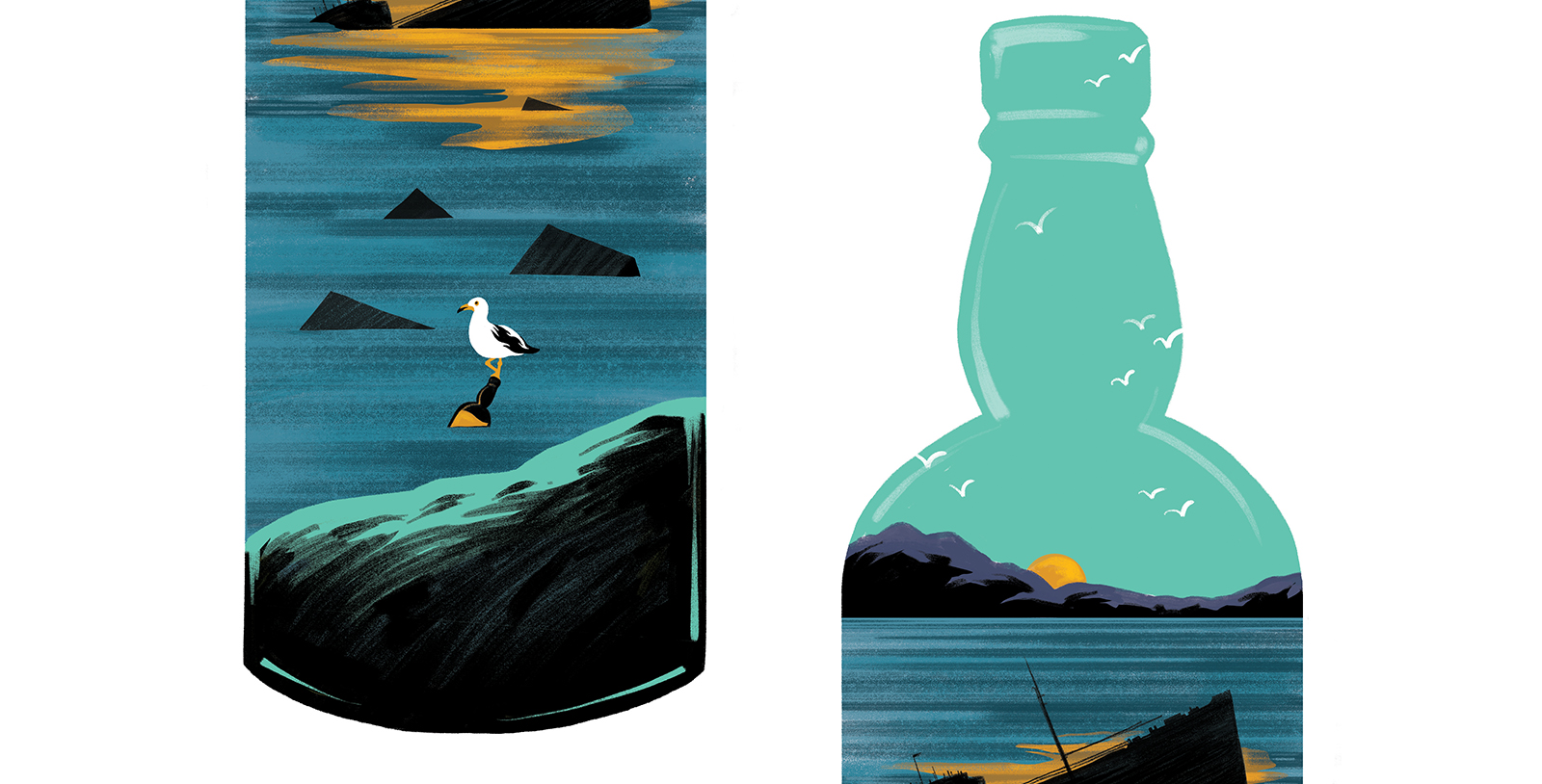The Empty Bottle
One of these days I must do something about the bottle. It’s an empty liquor bottle and has the appearance of something I retrieved from a ditch, which is partly true. But it wasn’t really a ditch and it was not I who retrieved it but a crofter working his small patch of land on an island in the Outer Hebrides, off the west coast of Scotland. My fear is that, when I become incapacitated, someone will simply toss the bottle in the trash. I’ve had it for nearly 50 years. Here’s its story.
My paternal ancestors came to Cape Breton from the island of South Uist. In 1970, I visited the island and I think I was the first in my father’s line of descent to have done so since the initial exile (caused by religious disturbances) in 1819. It was a nostalgic trip. My father had died at the age of 50 the year before. The Gaelic language, which still thrives in the Hebrides, was his mother tongue and I suppose I was anxious to, once again, hear it spoken as a normal means of communication.
I had no expectation that anyone would know the history of my family but I was wrong. Connections were quickly made, explained and celebrated.
Not much had happened there in the 150 years of separation. But there was one event, in February, 1941, that stood out in local lore — in fact had become the subject of a novel (Whisky Galore) and a movie (Tight Little Island).
The storm raged on but word spread. The ship had already started breaking up and there was no hope of salvage — at least not in the formal, legal sense.
On a stormy winter night a cargo ship, SS Politician, en route to the Americas foundered between South Uist and its nearby southern neighbour, Eriskay. The ship was carrying 28,000 cases of malt Scotch whisky. The crew abandoned ship, finding refuge in island crofts. The storm raged on but word spread. The ship had already started breaking up and there was no hope of salvage — at least not in the formal, legal sense.
The intrepid islanders were soon aboard, and removed an estimated 24,000 bottles of the precious cargo before the ship went down. The ceilidh lasted for days on all the nearby islands — Uist, north and south, Benbecula, Barra, Eriskay. Word spread again. And soon the crofts were being visited by zealous customs officers. Most of the contraband had already disappeared, down the Gaelic gullets, into byres and bogs. But the circumstances of concealment were in many cases compromised by the consumption of the product they were hiding. And so not everyone could remember where the booze was buried.
And so it was that crofters working the fields and peat bogs for years thereafter would occasionally turn up a bottle. Donald MacIntyre, a distant cousin, found one just before my historic visit in 1970 and to commemorate the occasion, presented it to me.
The gesture, to be honest, was more precious than the gift — a black, undrinkable fluid — but I am fascinated by the bottle and the story. The snap on metal cap, the words Black and White still legible, had rusted badly and has since been lost. Perhaps if there had been a cork …
Nevertheless, the bottle is precious to me — a memory of a quiet gesture by a good man in a place where, in a century and a half, not much had changed, including native hospitality and generosity.










